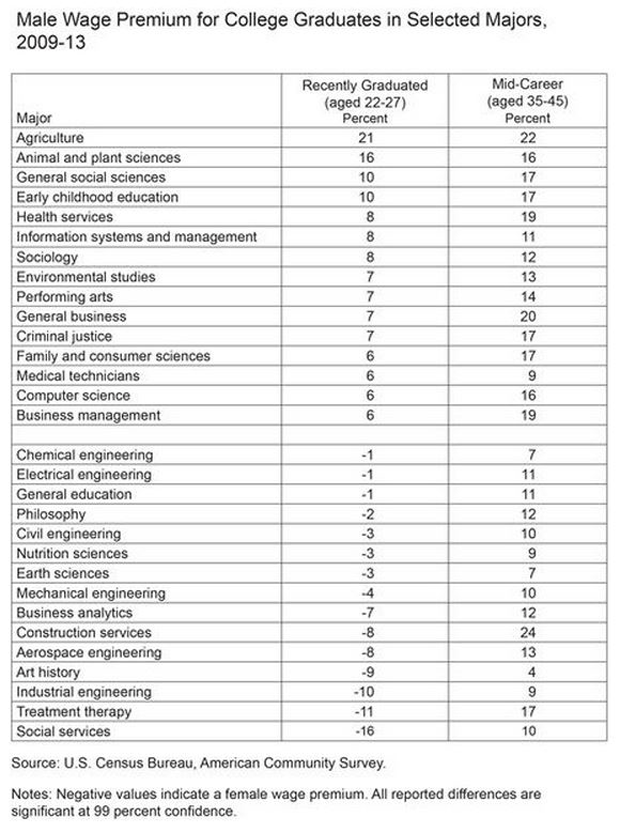The good -- and bad -- news about women's pay
The gender pay gap -- the phenomenon of women making less than men for doing the same job -- has drawn criticism from the likes of Pope Francis and President Barack Obama. But while indignation is easy, pinning down the reasons for that divide is less straightforward.
Now, research from the Federal Reserve Bank of New York is providing a fresh look at why women earn less than men. The findings suggest that, while younger women are catching up to -- and even sprinting past -- men in some occupations, those gains evaporate as female employees enter the middle of their careers.
Women who have recently graduated from college earn about 97 cents for every $1 earned by men who have the same college major and are employed in the same jobs, according to the research, which looked at grads between 22- and 27-years-old.
Even better for young women is that they out-earn men by a wide margin in a number of professions, according to researchers Jaison R. Abel and Richard Deitz. Those professions include engineering, art history, construction services and business analytics.
"In fact, according to our estimates, newly minted female college graduates earn as much as, or more than, men in twenty-nine of the seventy-three majors," the researchers write.
So women are, in some cases, making more than their young male colleagues, while overall the gender pay gap for 20-something women is only 3 cents on the dollar (see chart at bottom). That's minimal, especially when one considers that the overall pay gap for women of all ages is 78 cents for every $1 earned by men.
So what's the bad news? The research found a troubling trend: That pay gap widens as women and men hit their mid-career strides, just when earnings should be at their highest. For workers who are 35-to-45-years-old, men make about 15 percent more than women -- much higher than the 3 percent gap for women in their 20s, the researchers found.
The bottom line is that the early lead held by women in some categories appears to fall off in as little as a decade.
"When we estimate the gender pay gap by major for the mid-career group, the advantage completely disappears in the majors where we found younger women earned more than younger men, and the male wage premium widens substantially across nearly every major," the study noted.
Take social services majors, for instance. Recent female college grads in the field earn 16 percent more than men. But that turns into a 10 percent wage premium for men in the mid-career years, or a decline of more than 25 percentage points for women.
The analysis studied workers at different ages at the same point in time, rather than following the same people through their careers. It's possible that today's new college grads may have a different outcome in earnings, especially if employers and policy makers address the gender gap over the next few years.
So why does the gender gap widen as workers age? It could be due to discrimination, which might become more widespread as workers hit their mid-career years, or because women are taking time out of the labor force to raise families, the researchers noted.
"When we look at the outcomes of young college graduates, this group primarily contains single people without children, while the mid-career group includes a significant number of men and women with children," they wrote. "Women are more likely than men to spend time out of the labor force to bear and raise children. This interruption in a working career reduces the accumulation of work experience and human capital."
Women in careers that reward long hours and inflexible schedules may also get hit with a wage penalty if they take time off for family responsibilities, the researchers wrote. They added, "In jobs where such time demands are largely absent, and more flexibility is possible, the pay gap has been found to be much smaller."
That echoes research from other economists, such as Claudia Goldin at Harvard University, who has noted that women take a wage hit for seeking more flexible schedules. With women increasingly filling the halls at universities and achieving in the workplace, the labor market needs to adopt strategies such as job-sharing in order to create a more equal work environment for men and women, according to Goldin.
While there will always be jobs that require 24-hour availability (such as the U.S. President), others could adapt, possibly eliminating the gender pay gap in the process.
